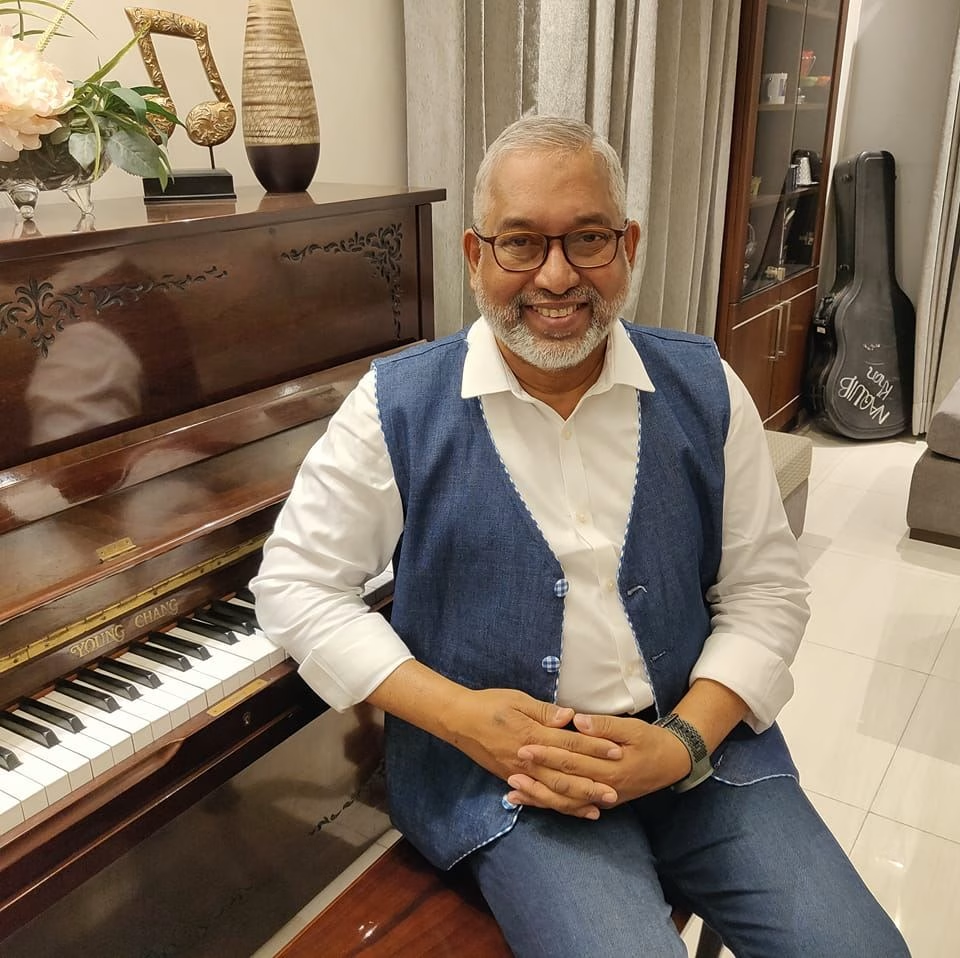Celebrated for his melodies and keyboard mastery, the musical legend marks 50 years in music, reflecting on his journey with Ahmed Zaman Shimul.
Looking back on 50 years in music, what is the first feeling that comes to mind?
It feels like a huge achievement to have received people’s love and respect for so many years. Not everyone gets that privilege.
Tell us about the beginning of your musical career.
Music was always present in my family. My three brothers were musicians, and my elder brother was part of the well-known Chattogram-based band ‘Zinga Gosthi’. When he moved to Dhaka for his banking job, the band disbanded in 1973. Soon after, another band called ‘Surela’ was formed in Chattogram, later renamed ‘Souls’ in 1974. I joined them that same year.
At the time, they only performed covers. My first wish was to create something original. That year I composed ‘Ekaaki Jahan’ to lyrics penned by Hena Islam – my first ever composition and the official beginning of my 50-year career.
How did that composition come about?
Hena Islam, a friend of my elder brother, had written several songs for him. I found them in his drawer and tried composing one. Nervously, I confessed to my brother that I had done something without asking. I played the song for him and he embraced me. Interestingly, Ekaaki Jahan has still never been released, but I plan to do so soon.
How was Renaissance formed?
I stayed with Souls until 1983. After my father passed away around 1981, 1982, we moved to Dhaka the next year. It became difficult to continue with Souls but I practised regularly with friends in Dhaka. In 1985, my brother Pilu Khan and I, along with five others, formed Renaissance.
Band music was like a movement back then. What challenges did you face?
When Souls began in Chattogram, we were lesser known and society was old-fashioned. Starting a band was seen as a subcultural rebellion. Instruments were hard to find and parental support was rare. I joined Souls before my matriculation. My father, a headmaster, never stopped me. In fact, he encouraged me. That is a debt I can never repay.
What was the turning point of your career?
In 1976, we travelled to Dhaka for a pop music competition called ‘It’s Our Turning’. Souls won the championship. I received the Best Keyboardist award and Tajul Islam from our team won Best Singer. After that, we began performing at Dhaka Medical College, Shilpakala Academy and on BTV. Our name spread nationwide.
You have long spoken about copyright issues. How do you see the situation today?
Although copyright law exists, implementation is weak. Creators must receive proper royalties. Performers might earn from concerts, but songwriters and composers often get nothing. The digital era has worsened the problem, with music being copied too easily. Stronger technology and enforcement are essential.
Older songs still appeal to audiences. Why do you think that is?
It’s not that people don’t listen to new songs, but preferences shift with generations. In the past, everyone relied on BTV, so songs reached the masses. Today, there are countless channels but no quality music programmes, CDs, albums or concerts. If music doesn’t reach people, how will they discover new talent?
What is the reason behind your career shift from music-making to corporate work?
For livelihood. Had I received proper royalties for ‘Tore Putuler Moto Kore’ and ‘Mon Shudhu Mon Chuyeche’, I wouldn’t have needed another job. Those two songs alone could have earned me crores.
Why have you made music for advertisements and not for films?
I would happily compose for films if given full creative freedom. Recently, I worked on Kaushik Shankar Das’s film ‘Boxer’, which will be released soon.
What message would you give to young musicians today?
Music is not about shortcuts. It’s easy to become a star, but difficult to become an artist. Hard work is essential. A song may get millions of views, but without strong audio it won’t last. Technology should be a tool, not a crutch. Musicians should explore songs from every culture and genre. Sadly, many are damaging our folk heritage in the name of fusion. But original songs can never be destroyed, nor should they be.
What are your future plans?
Renaissance marks its 40th anniversary this year. We plan to release new songs and organise a celebratory event.


